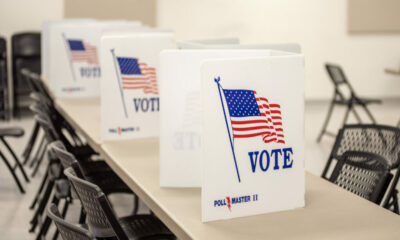(The Center Square) – Federal legislation allowing states to jam cellphones smuggled into prisons has won support from Arizona Attorney General Kris Mayes and other attorneys general.
Mayes joined a bipartisan coalition that wrote a letter to majority and minority leaders in the House and Senate last week in support of H.R. 2350 and S. 1137, federal legislation that supporters say disrupt prisoners’ ability to orchestrate crimes from behind bars by using cellphones smuggled into prisons.
The bills, which are sponsored by U.S. Rep. David Kustoff, R-Tennessee, and U.S. Sen. Tom Cotton, R-Arkansas, allow states to deploy cellphone jamming systems.
“Contraband cell phones give dangerous individuals the power to direct drug trafficking, commit fraud, and threaten innocent people from behind bars,” Mayes said in a news release. “This legislation is about giving states the tools we need to protect the public and stop violent criminals from continuing to operate prison-based crime rings. It’s a commonsense, bipartisan solution — and Congress should act without delay.”
The letter to Congress stresses that phones go beyond being communication devices to being tools that criminals use to commit crimes. It cites a case of a violent gang leader who used a cellphone smuggled into prison to target a local prosecutor and her family in North Carolina.
The criminal planned to kidnap and kill the prosecutor’s father, but law enforcement prevented that from happening, the attorneys general said in their letter to congressional leaders.
“Current federal law severely restricts our ability to implement effective countermeasures,” the attorneys general wrote. “While we have access to some technological solutions, we cannot deploy the most effective tool available — cell phone jamming systems — which leaves our prisons vulnerable and our communities at risk.”
“Each day that passes without this authority represents another opportunity for incarcerated criminals to extend their reach beyond prison walls,” they said.
Besides Mayes, attorney generals signing the letter represent Alabama, Alaska, Arkansas, Connecticut, Florida, Indiana, Iowa, Kentucky, Louisiana, Maryland, Michigan, Mississippi, Nebraska, Nevada, New Hampshire, New Mexico, North Dakota, Northern Mariana Islands, Ohio, Oklahoma, Oregon, Pennsylvania, South Carolina, Texas, Virginia and West Virginia.












































